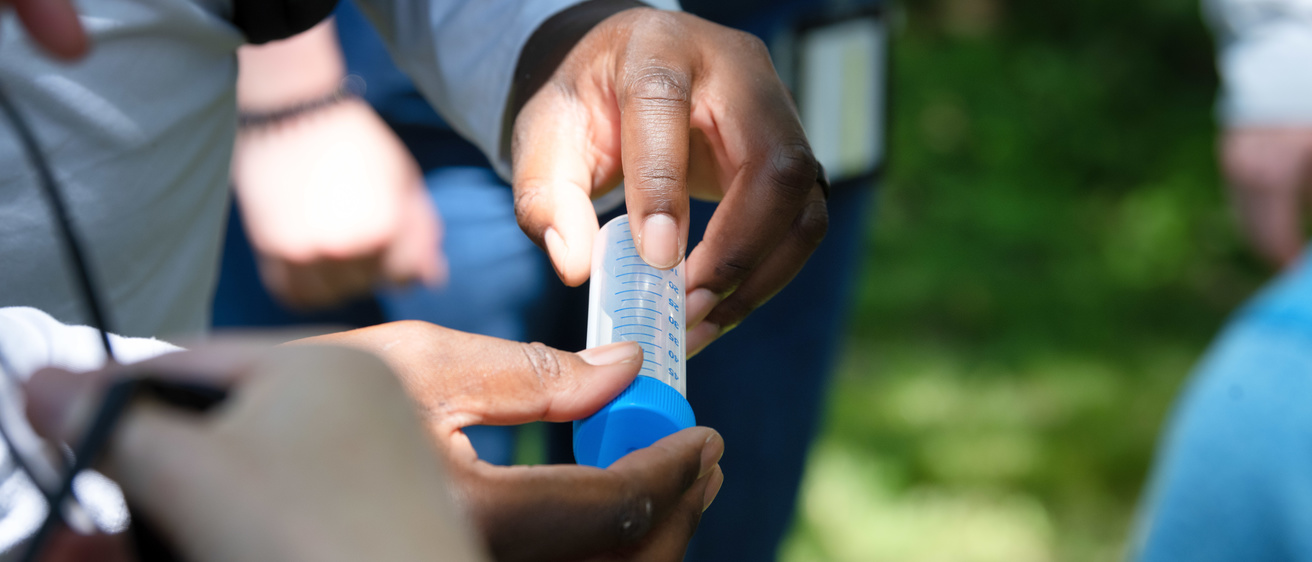Public health is the science of protecting and improving the health of communities. This is a collaborative, varied field that attracts people who want to improve human health using skills from areas such as behavioral and social science, environmental science, math and statistics, laboratory science, and policy development.
Public health professionals use specialized skills and knowledge to better understand the underlying causes of diseases and injuries and develop strategies to prevent them. They promote healthy lifestyles, develop vaccines, ensure the safety of the food supply and new drugs, implement programs that protect workers' health, and shape policies that ensure quality health care.
The College of Public Health is Iowa's only accredited school of public health and is ranked among the top 20 schools and programs of public health in the nation. With an extensive network of community partners who support students' learning and a track record of offering high-quality education, Iowa prepares students for rewarding careers in public health practice or further academic study.
The college offers opportunities to engage in research, internships, and experiential learning; focuses on professional development; and provides an option for students to earn both their bachelor's and master's degrees in five years.
The college's location at a major research university enables its students to collaborate easily with those in other disciplines. The Carver College of Medicine and University of Iowa Hospitals & Clinics provide numerous opportunities for research partnerships in the health sciences.
Students may not earn both an undergraduate (BA or BS) degree in Public Health and the certificate in Public Health. Review our Areas of Study to select a major.
Students may be admitted to the College of Public Health either through Direct Admission or Standard Admission.
Direct Admission is designed for students applying to the university as first-year students for the fall semester. Applicants who meet course requirements and either the test score or GPA requirement will be considered for admission.
First-year students not admitted directly to the College of Public Health may be admitted to the College of Liberal Arts and Sciences as a Public Health Interest major.
Undergraduates at Iowa are eligible to apply for Standard Admission to the College of Public Health after completing prerequisite courses and earning the required GPA.
Transfer students
Transfer students are encouraged to apply to Public Health and will be reviewed for direct admission.
Information

First-Year

Transfer

International
Within six months of graduating, 96 percent of Iowa graduates are employed, continuing education, or not seeking work. Our Pomerantz Career Center offers multiple resources to help students find internships and jobs.
Public health is a broad and wide-ranging field. The BA and BS programs prepare students to meet emerging health challenges in entry-level positions at the local, state, national, or global level.
The BA program provides knowledge of the social and behavioral aspects of public health for students interested in health education, health communication, public health program development, or public health policy in local, federal, or international agencies. Graduates will be prepared for further study in the social sciences, community health, and health policy and management.
The BS program provides knowledge of the biomedical aspects of public health for students interested in epidemiology, environmental health, population health, or disease prevention in local, federal, or international agencies. Graduates will be well prepared for advanced education in the health sciences and related fields.
In addition to more than 600 Student Organizations, Iowa students choose from more than 100 Study Abroad Programs and multiple Undergraduate Research Opportunities.
Public Health students are encouraged to learn outside the classroom by participating in community service, volunteer opportunities, or in research projects with faculty members. Students doing research also can apply for competitive scholarship support from the Office of Undergraduate Research.
Students may join the Undergraduate Public Health Organization or become involved in the college by serving on committees and attending meetings with the dean, advisory councils, and alumni boards.
The University of Iowa provides a variety of scholarships to eligible undergraduate students through the Iowa Scholarship Portal. Scholarships are available to first-year, transfer, and currently enrolled students. For additional details on scholarships for your program of study, check directly with the department or college.
The Office of Admissions and the Office of Student Financial Aid are great resources for students seeking scholarships.
Students granted direct admission to the college are eligible to apply for first-year public health scholarships. Visit the Iowa Scholarship Portal to learn how to apply for these competitive scholarships.
The BA and BS programs teach the fundamentals of the core areas of public health: biostatistics, social and behavioral sciences, epidemiology, health policy and management, and occupational and environmental health sciences.
Core coursework focuses on the determinants of health and health disparities within and across populations.
The BA program is for students interested in the social sciences and public health. BA students complete additional required coursework in the social sciences and humanities.
The BS program is for students interested in the biomedical sciences and public health. BS students complete additional required coursework in the natural sciences and mathematics.
Required coursework for all Public Health majors includes:
- Fundamentals of Public Health
- Public Health Science: Inquiry and Investigation in Public Health
- The U.S. Health System in a Global Context
- Introduction to Public Health Methods
- Health, Work, and the Environment
- Global Public Health
- Methods for Program Implementation and Evaluation
- Practice of Evidence-Based Public Health
Students admitted to the College of Public Health must complete the college's general education requirements in addition to coursework required for their specific major. Review Public Health in the General Catalog for more information about required courses and graduating with honors in the major.
Experiential Learning
Students in the College of Public Health apply what they learn in the classroom to real-world public health experiences. Students learn by doing and develop skills that are critical for success in the workplace, in graduate or professional schools, and in their community.
All Public Health majors must successfully complete at least one of the following experiences to graduate: research, internship, global learning/study abroad, or service learning.
Undergrad to Grad Degree Program
Combined undergraduate to graduate programs provide an opportunity for students interested in public health to earn both their bachelor's and master's degrees in five years.
Pursuing a combined degree allows students to further explore their interest in the field of public health, expedite time to degree (five years versus the typical six years), and save money by cutting one year of tuition.
Public Health Certificate
The undergraduate Certificate in Public Health is designed for non-Public Health majors and anyone interested in learning about public health concepts to enhance their ability to succeed in their chosen field.
This certificate may be earned by any student admitted to Iowa who is not currently enrolled in a graduate or professional program, except for those who are earning or who have earned a BA or BS degree in public health.
The certificate requires 18 semester hours of courses taken at Iowa. Students must maintain a GPA of at least 2.00 in work for the certificate. Before beginning certificate work, students should contact the certificate coordinator to complete a plan of study.
Students completing this certificate will have an understanding of emerging issues in public health, the social and behavioral aspects of preventing disease, environmental health concepts, and the health care system in the United States compared to systems globally.
